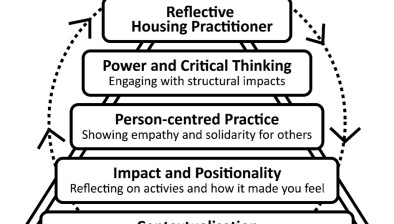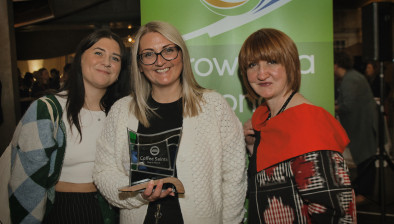Blog: New EHRC guide for disabled people seeking accessible housing
 In a guest blog written for Inclusion Scotland, the Equality and Human Rights Commission highlights a new guide for disabled people living in Scotland looking at social housing, the private rented sector and adaptations (for all tenures).
In a guest blog written for Inclusion Scotland, the Equality and Human Rights Commission highlights a new guide for disabled people living in Scotland looking at social housing, the private rented sector and adaptations (for all tenures).
In December 2016, the Equality and Human Rights Commission launched a formal inquiry on housing for disabled people. During the inquiry, disabled people, including June and Michelle who are featured in this video, told us about the terrible situations they found themselves in – sometimes being stuck in unsuitable housing for years with no opportunities of being able to move – and what helped them to achieve change.
The inquiry demonstrated that the lack of suitable housing and adaptations prevents disabled people from accessing their human rights to independent living and adequate housing. It found that advice and support play a key role in empowering disabled people to claim their rights. We have therefore published a guide for disabled people living in Scotland looking at three important topics:
As part of our inquiry, we asked disabled people to take part in an online survey and organised roundtable discussions to share their lived experiences. Our guide is based on these contributions and include tips that disabled people shared with us.
Getting access to adequate housing or adaptations is difficult and often requires persistence and having a detailed understanding of the processes involved. While some of the respondents mentioned specific sources of advice that helped them, many said that they did not know where to go to get advice. They described finding themselves being passed from pillar to post, having to wait months if not years before they saw any significant progress.
The guide is not aimed to replace the vital advice and support that other organisations, including Inclusion Scotland and Housing Options Scotland, already provide but will guide you towards that advice. It tells you who you can contact for what, what to look for and how to make sense of the complicated processes.
We hope that you find the guide useful and that it helps to empower you when claiming your rights to independent living and adequate housing or helping others to access theirs.
Take a look at and make use of the guide, share it with others and tell us what you think.
We would like to thank the respondents to our survey and the disabled people and professionals who shared their experiences and tips with us. The guides were prepared for the Equality and Human Rights Commission by Imogen Blood and Associates, working in partnership with Housing Options Scotland, the Housing Learning and Improvement Network, and Disability Wales.








